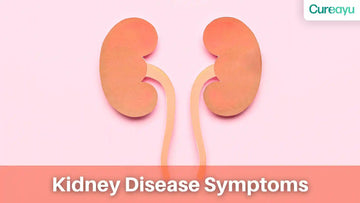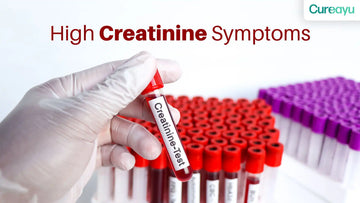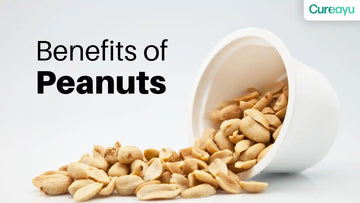Kidney stones, a common ailment affecting millions of people globally, can cause significant discomfort and pain. Understanding the symptoms of kidney stones is crucial for early detection and treatment. Though small, these stones can lead to severe complications if not addressed promptly. In this blog, we will delve into the symptoms, causes, and preventive measures related to kidney stones, providing a well-rounded understanding of this condition.
The symptoms of kidney stones can often mimic other ailments, making it essential to recognize the distinct warning signs. Early intervention not only alleviates pain but can also prevent the development of more serious health issues. Our goal is to equip you with the knowledge to identify these symptoms, understand their causes, and adopt practices to reduce the risk of kidney stones.
Also Read: How Healthy Eating Prevents Kidney Stones
What Are Kidney Stones?
Kidney stones are hard deposits made of minerals and salts that form inside the kidneys. They develop when the urine becomes concentrated, allowing minerals to crystallize and stick together. Kidney stones vary in size and can be as small as a grain of sand or as large as a golf ball. Some kidney stones pass through the urinary tract without causing any symptoms, while others can cause intense pain and require medical intervention.
The most common types of kidney stones include calcium stones, struvite stones, uric acid stones, and cystine stones. Each type forms due to different reasons, such as high levels of calcium, infections, metabolic conditions, or genetic disorders. The variance in composition underscores the importance of understanding the specific type of stone to determine the appropriate treatment and preventive measures.
What Are The First Signs Of Kidney Stones
Severe Pain in the Back, Belly, or Side: Intense and sudden pain, often described as one of the worst experiences, originates in the back or belly and can shift to various parts of the body. This pain, known as renal colic, occurs due to the stone moving in the urinary tract, causing severe discomfort as it obstructs urine flow.
Pain During Urination: As kidney stones progress down the urinary tract, the bladder and urethra can become irritated, leading to sharp pain when urinating. This symptom indicates the stone's approach towards being expelled from the body but demands medical attention if the pain is severe or persistent.
Blood in Urine: Visible blood in urine, ranging from pink to brown, is a common symptom of kidney stones. Hematuria occurs when the stone causes abrasions in the urinary tract, resulting in bleeding. Immediate medical consultation is advised if blood in urine is noted.
Frequent Urination: An increased urge to urinate or frequent trips to the bathroom can indicate a kidney stone's presence. The frequency of urination is due to the stone's attempt to pass through the urinary tract, disturbing the normal flow of urine.
Nausea and Vomiting: Nausea and vomiting often accompany severe kidney stone pain. This occurs as the body responds to the intense pain through the autonomic nervous system, leading to gastrointestinal disturbances.
Also Read: Managing Kidney Stones: Insights, Medications, and Ayurvedic Approaches
Causes of Kidney Stones
Dehydration
Insufficient water intake is a primary cause of kidney stones. Dehydration leads to concentrated urine, facilitating the crystallization of minerals into stones.
High Protein, Sodium, and Sugar Diet
Diets high in protein, sodium, and sugar can increase the risk of certain types of kidney stones. High sodium levels, for instance, cause the kidneys to excrete more calcium, which can form stones.
Obesity
Obesity is linked to changes in the acid level of urine, which can lead to kidney stones. Increased body weight also contributes to higher chances of developing uric acid stones due to the altered metabolic rate.
Medical Conditions
Certain medical conditions, such as hyperparathyroidism, gout, and diabetes, can predispose individuals to kidney stones. These conditions alter the metabolic processes, increasing the risk of stone formation.
Family History
Genetics play a significant role in kidney stone formation. A family history of kidney stones significantly increases an individual's risk, making hereditary factors a notable cause.
Where Kidney Stone Pain Occurs
Kidney stone pain generally originates in the lower back, just below the ribs, and can radiate to the abdomen, groin, or thighs as the stone moves through the urinary tract. The pain tends to be sharp, severe, and fluctuating in intensity, often coming in waves. This condition, known as renal colic, is considered a medical emergency due to the sudden onset and intensity of pain.
Also Read: Pathri का दर्द हो तो क्या करें
How To Treat Kidney Stone Pain
Drinking Water
Adequate hydration helps flush out the kidneys and facilitates the movement of stones through the urinary tract. Aim for at least 8-10 glasses of water a day to dilute the urine.
Pain Relief Medication
Over-the-counter pain relievers like ibuprofen, acetaminophen, or naproxen can help manage the discomfort associated with kidney stones. Always consult a doctor before starting any medication.
Medical Procedures
In cases where stones are too large to pass naturally, medical procedures such as extracorporeal shock wave lithotripsy (ESWL), ureteroscopy, or surgery may be required. These treatments break down the stones or remove them entirely.
Medications to Assist Stone Passage
Certain medications, such as alpha-blockers, help relax the muscles in the urinary tract, making it easier to pass stones. These are usually prescribed based on the stone’s size and location.
How To Prevent Kidney Stones
Stay Hydrated
Drinking adequate amounts of water daily helps to dilute the substances that lead to stones. Aim to drink enough water to keep urine light yellow or clear.
Dietary Adjustments
Reducing intake of sodium, oxalate-rich foods (like spinach, beets, and nuts), and animal protein can decrease the risk of stone formation. Incorporate fruits and vegetables that help balance the acid levels in the urine.
Regular Check-ups
Regular monitoring through urine and blood tests can help detect high levels of stone-forming substances early. This enables timely intervention and preventive measures.
Manage Medical Conditions
Proper management of existing medical conditions like diabetes or gout can prevent the metabolic imbalances that lead to kidney stones. Follow your doctor's recommendations closely.
Avoid Stone-Promoting Supplements
Excessive intake of vitamin C, calcium, and certain herbal supplements can contribute to kidney stone formation. Consult a healthcare provider before beginning any new supplement regimen.
Also Read: How to Stay Hydrated in Summer: Tips and Tricks for a Cool and Healthy Season
Conclusion
Understanding the symptoms of kidney stones, recognizing the early signs, and adopting preventive measures can significantly reduce the associated health risks. Symptoms such as severe pain, blood in urine, and frequent urination should prompt immediate medical attention. Awareness and education around the causes and effects of kidney stones can empower individuals to make informed lifestyle choices, reducing the likelihood of occurrence.
Kidney stones can cause considerable pain and distress, but with the right knowledge and proactive health practices, their impact can be minimized. Staying hydrated, maintaining a balanced diet, and seeking regular medical attention are key components in preventing kidney stones. By taking these steps, you can safeguard your kidney health and ensure overall well-being.












